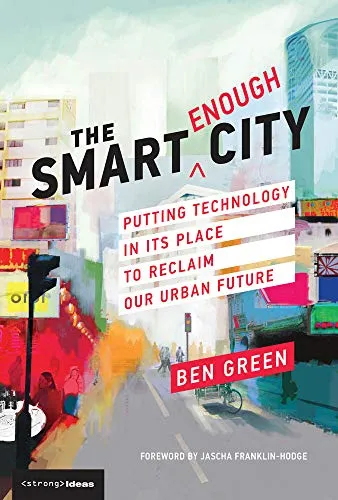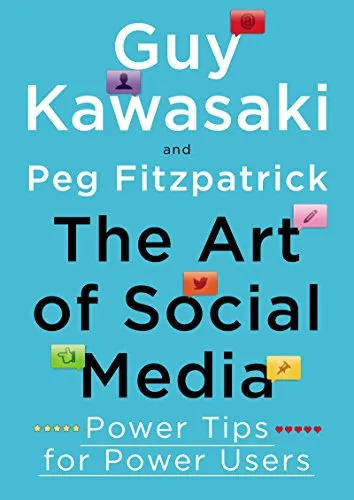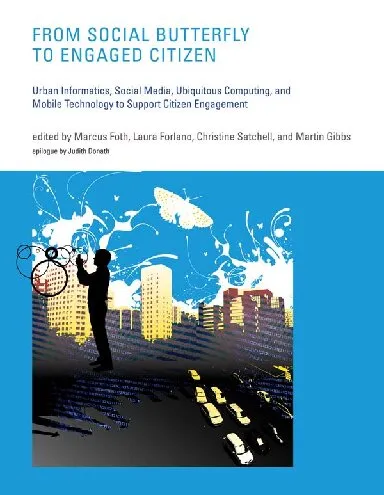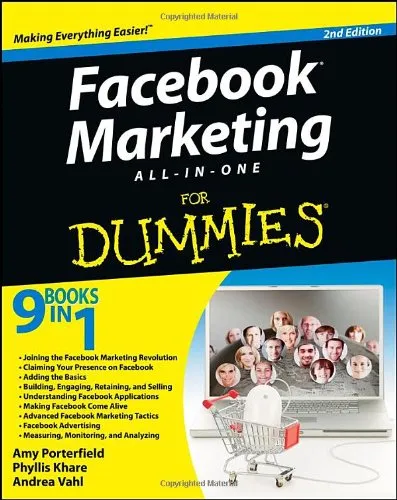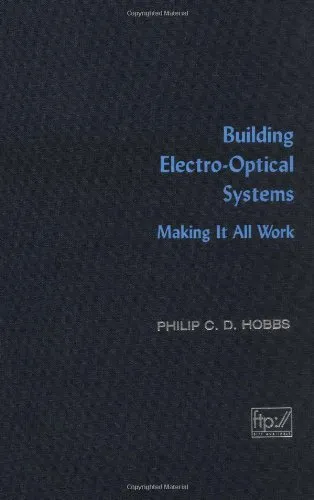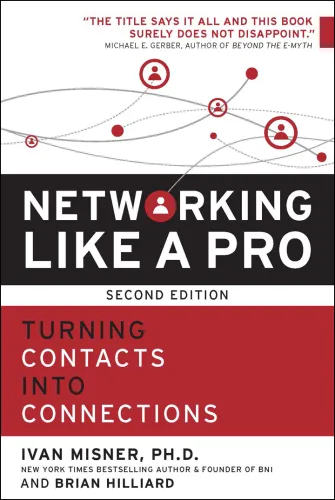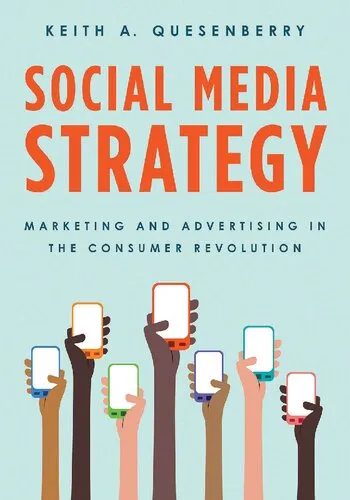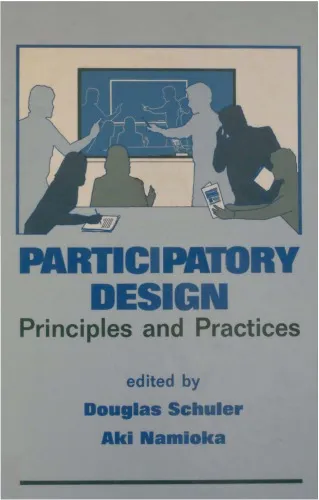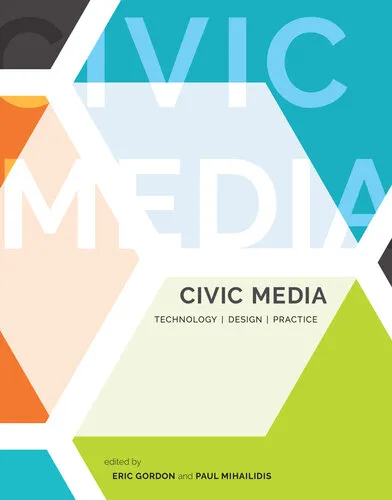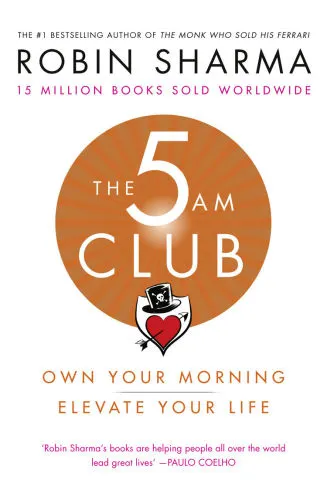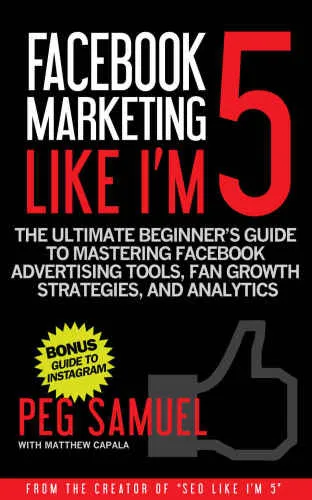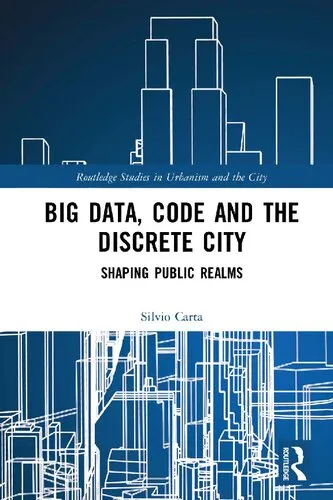The Smart Enough City: Putting Technology in Its Place to Reclaim Our Urban Future (Strong Ideas)
4.5
Reviews from our users

You Can Ask your questions from this book's AI after Login
Each download or ask from book AI costs 2 points. To earn more free points, please visit the Points Guide Page and complete some valuable actions.Related Refrences:
Introduction
"The Smart Enough City: Putting Technology in Its Place to Reclaim Our Urban Future" challenges the pervasive narrative that technological innovation alone is the key to solving many urban problems today. Written by Ben Green, this book offers a critical and thought-provoking perspective on how smart cities are conceptualized and implemented, arguing that technology should serve as a tool for addressing deeply rooted social and political challenges—not as a blanket solution to every problem neighborhoods, cities, and societies face.
Instead of blindly trusting in the potential of artificial intelligence, data analytics, and other high-tech solutions, "The Smart Enough City" calls for a recalibration of how we think about urban futures. It pushes back against tech-centric city planning, shedding light on the unseen risks of adopting technologies without careful consideration of local needs, democratic decision-making, and fairness. Ben Green advocates for an alternative approach: creating cities that are "smart enough" by prioritizing justice, equity, and human well-being over the pursuit of technological perfection.
In this book, readers are invited to critically question whether the so-called "smart city" movement truly aligns with the ideal of fostering inclusive, thriving communities, or if it inadvertently exacerbates existing societal challenges. Through carefully researched arguments, real-world case studies, and a forward-thinking vision, Green inspires readers to think about how technology can be more responsibly integrated into urban governance.
Detailed Summary
"The Smart Enough City" unfolds as a compelling critique of the "technological determinism" embedded in modern urban planning. Ben Green defines a "smart city" as a data-driven urban environment where cutting-edge technology is deployed to tackle everything from traffic congestion to climate challenges. However, Green makes it clear that this vision often falls short because it overlooks how these technologies may perpetuate inequality or undermine democratic control.
Throughout the book, Green analyzes real-world examples that capture the complexities of integrating technology into urban systems. He examines smart policing initiatives, arguing that predictive policing can lead to biased law enforcement outcomes. He also critiques urban surveillance technologies, showing how they can erode privacy while failing to truly enhance public safety. In the realm of public infrastructure, Green highlights the pitfalls of automated transit systems that prioritize efficiency at the expense of accessibility.
Green’s proposed alternative—the "smart enough city"—is not devoid of technology but is deeply cautious and intentional in its use. It prioritizes human-centric goals over the lure of cutting-edge innovations. Social inclusion, civic participation, and equity are seen as fundamental building blocks for urban advancements rather than afterthoughts.
Key Takeaways
- Technology should complement—not replace—human decision-making in cities.
- Smart city initiatives often fail to address systemic societal problems, focusing instead on superficial fixes.
- Urban technologies can unintentionally deepen existing inequalities unless thoughtfully implemented.
- Communities must actively participate in decisions about new technology to ensure democratic control.
- The goal should not be to create a "perfectly smart" city but to build one that is equitable, sustainable, and inclusive.
Famous Quotes from the Book
- "Technology is not a cure-all but a tool, and like any tool, it must be wielded wisely."
- "A truly smart city is one where technology is put in the service of justice—not the other way around."
- "No technology can fix a problem we are unwilling to confront."
- "The smartest cities are not those with the most sensors and data but those that prioritize fairness and democracy."
Why This Book Matters
"The Smart Enough City" is a timely intervention in the ongoing conversation about the future of urban spaces in the age of digital transformation. In a world where tech companies are increasingly shaping cities, Ben Green’s insights encourage readers to ask hard questions about the motivations behind these projects. Are they designed to genuinely benefit all citizens or to serve the interests of a few stakeholders?
This book resonates deeply with urban policymakers, technologists, and everyday citizens alike by confronting uncomfortable truths about technology's role in shaping contemporary life. With its evidence-based critique and alternative vision for a just city, "The Smart Enough City" empowers readers to advocate for a more balanced and ethical approach to urban governance.
Ultimately, Green's argument underscores the importance of retaining human oversight over technological development—a message that resonates far beyond city planning and speaks to the broader challenges of navigating the digital age responsibly.
Free Direct Download
You Can Download this book after Login
Accessing books through legal platforms and public libraries not only supports the rights of authors and publishers but also contributes to the sustainability of reading culture. Before downloading, please take a moment to consider these options.
Find this book on other platforms:
WorldCat helps you find books in libraries worldwide.
See ratings, reviews, and discussions on Goodreads.
Find and buy rare or used books on AbeBooks.
